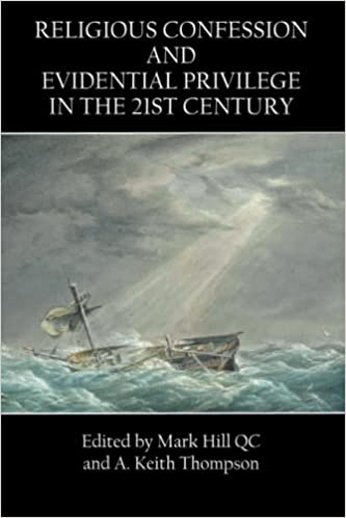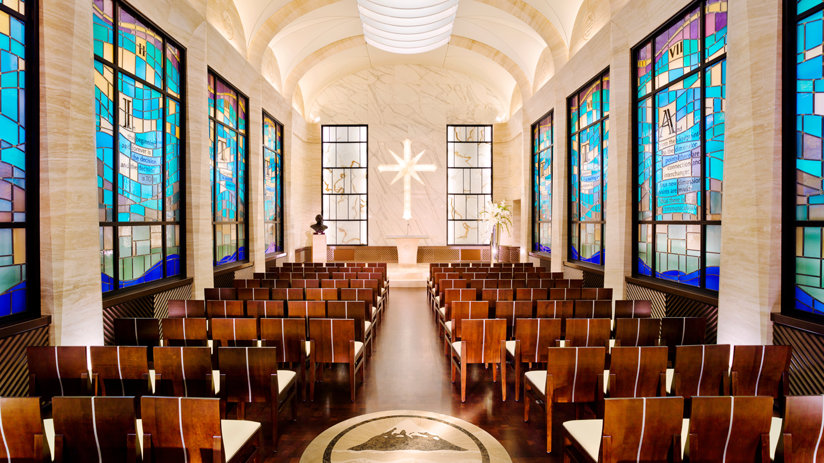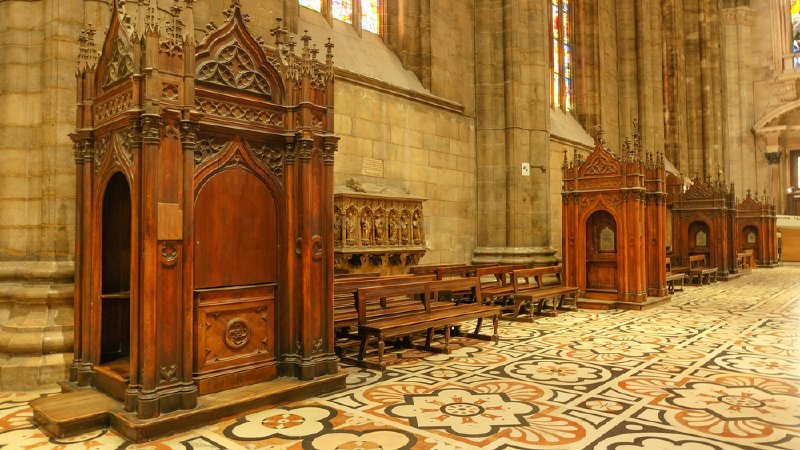
-
HOME
-
WHAT IS STANDOur Mission Our Values Our Help Contact
-
WHAT WE FIGHT FORReligious Freedom Religious Literacy Equality & Human Rights Inclusion & Respect Free Speech Responsible Journalism Corporate Accountability
-
RESOURCESExpert Studies Landmark Decisions White Papers FAQs David Miscavige Religious Freedom Resource Center Freedom of Religion & Human Rights Topic Index Priest-Penitent Privilege Islamophobia
-
HATE MONITORBiased Media Propagandists Hatemongers False Experts Hate Monitor Blog
-
NEWSROOMNews Media Watch Videos Blog
-
TAKE ACTIONCombat Hate & Discrimination Champion Freedom of Religion Demand Accountability
Church of Scientology Contributes to Major Study on Priest-Penitent Privilege
On December 15, 2021, the leading academic publishing house of Connor Court, located in Australia, published through Shepherd Street Press a comprehensive book entitled Religious Confession and Evidential Privilege in the 21st Century.

The book includes 10 chapters, all anonymously peer reviewed by judges, religious scholars and lawyers, discussing the history, existence, scope and application in several countries of what is colloquially called the “priest-penitent privilege”—although as the chapters make abundantly clear, the privilege is not limited to its historical roots in the Catholic Church. For millennia, the privilege, in various forms, has played an essential role in enabling religions to provide salvation, understanding and even forgiveness to those who may have erred, sinned or even committed criminal acts, but who nevertheless are part of a humanity which yearns to be good and just. By ensuring the confidentiality of such communications, the privilege encourages men and women to confront their mistakes and with the guidance of clergy seek to mend their behavior. It is difficult to imagine a religion that fails to provide such guidance and moral assistance to its followers.
The book was inspired and edited by a leading religious scholar in Australia, A. Keith Thompson, Associate Dean of the Sydney School of Law at the University of Notre Dame Australia, and by Mark Hill, Queens Counsel in London and Professor of Law at Cardiff University in Pretoria. It contains a foreword by the former Archbishop of Canterbury, Rowan Williams, and a thorough introduction by Dean Thompson. It is now the leading comparative study of a subject of great importance to religious leaders and people of faith.
For millennia, the privilege, in various forms, has played an essential role in enabling religions to provide salvation, understanding and even forgiveness.
I had the great privilege and responsibility to author the final chapter of the book, “The underlying constitutional basis for the minister/parishioner privilege in the United States and its application to the practices of Scientology.” A little over a year ago Dean Thompson contacted the Church of Scientology to inquire whether the Church would be interested in providing a religious freedom scholar or practitioner who could discuss both the status and operation of the privilege in the United States and how it interacts and affects the practice of the Scientology religion. As the attorney who has represented the Church longer than anyone in cases involving religious freedom and autonomy, the Church asked if I would undertake the project, and I readily agreed. I engaged in numerous emails and calls with Dean Thompson, as well as consultation with Scientology ministers on the details of how the privilege applies internally. The process went through several drafts, followed by enthusiastic peer review, and further editing.
The book has now been published and is available on Amazon or through the publisher by clicking here.

I am confident the book will prove to be of immense benefit to Scientology and to the principles of religious freedom. I am extremely gratified that Dean Thompson reached out to the Church to invite it to participate in such an international ecumenical effort, and I am personally honored to have had the opportunity to participate in this work. Over the many years, I have litigated over 50 cases for Scientology Churches, and won over 20 appeals, including in the Supreme Court. This project was a new way that I was able to assist Scientologists and the cause of religious freedom itself.









